|
Books Should Be Free Loyal Books Free Public Domain Audiobooks & eBook Downloads |
|
|
Books Should Be Free Loyal Books Free Public Domain Audiobooks & eBook Downloads |
|
Literature |
|---|
|
Book type:
Sort by:
View by:
|
By: Sinclair Lewis (1885-1951) | |
|---|---|
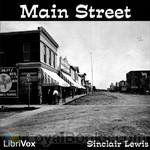 Main Street
Main Street
A social satire, Main Street became a best-seller soon after its publication, fascinating readers with its biting humor and realistic portrayal of small-town communities. Published in 1920, the novel follows Carol Milford as she moves to a conventional small town, where she encounters its conceited residents characterized by their ignorance, hypocrisy, and smugness, while simultaneously being the target of their careless ridicule. Furthermore, the novel efficiently exemplifies the dividing line between the sophisticated urban setting and the conventionally governed small-town, as it tackles issues of embracing differences, social class, disillusionment, feminism, and community... | |
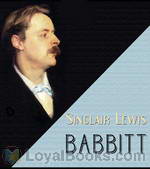 Babbitt
Babbitt
| |
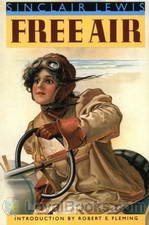 Free Air
Free Air
This road trip novel is set in the early twentieth century and follows the experiences of an aristocratic New Englander and her father as they travel by automobile from Minneapolis to Seattle. She is wooed and won by a noble but simple commoner she meets along the way. Lewis is at his usual wryly humorous self, poking fun at the upper class and treating the common people only slightly better. | |
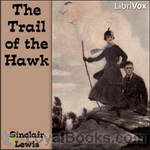 The Trail of the Hawk
The Trail of the Hawk
| |
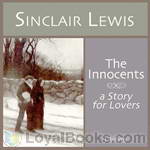 The Innocents, A Story for Lovers
The Innocents, A Story for Lovers
“Mr. and Mrs. Seth Appleby were almost old. They called each other 'Father' and 'Mother.' But frequently they were guilty of holding hands, or of cuddling together in corners, and Father was a person of stubborn youthfulness.” It is only by subterfuge that Seth is able every year to obtain his two week's vacation from the shoe store, and they are off to the farm-house of Uncle Joe Tubbs on Cape Cod. But this year the vacation turns into a full blown scheme to open a country tea room somewhere on Cape Cod, and their life suddenly begins to change. . . . (Introduction by Don W. Jenkins) | |
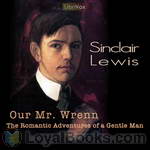 Our Mr. Wrenn, the Romantic Adventures of a Gentle Man
Our Mr. Wrenn, the Romantic Adventures of a Gentle Man
"At thirty-four Mr. Wrenn was the sales-entry clerk of the Souvenir Company. He was always bending over bills and columns of figures at a desk behind the stock-room. He was a meek little bachelor--a person of inconspicuous blue ready-made suits, and a small unsuccessful mustache." Mr. Wrenn, however has a rich inner life embellished by his own imagination. When he comes into a modest inheritance, he feels he ought to learn to get out and wander a bit, and then his education begins. He finds life more "interesting", perhaps than he had "imagined". . . (Introduction by Don Jenkins) | |
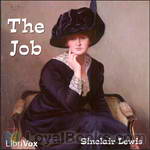 The Job
The Job
‘The Job’ is an early work by American novelist Sinclair Lewis. It is considered an early declaration of the rights of working women. The focus is on the main character, Una Golden, who desires to establish herself in a legitimate occupation while balancing the eventual need for marriage. The story takes place in the early 1900-1920’s and takes Una from a small Pennsylvania town to New York. Forced to work due to family illness, Una shows a talent for the traditional male bastion of commercial real estate and, while valued by her company, she struggles to achieve the same status of her male coworkers... | |
By: Charles Kingsley (1819-1875) | |
|---|---|
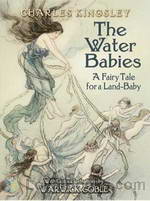 The Water-Babies
The Water-Babies
First published in 1863, The Water Babies by Rev Charles Kingsley became a Victorian children's classic along with J.M. Barrie's Peter Pan and Lewis Caroll's Alice books. It is an endearing and entertaining novel that can equally be enjoyed by adult readers as well. However, it fell out of favor in later years since it contained many ideas that are considered politically incorrect and offensive today from a humanitarian perspective. The Water Babies, A Fairy Tale for a Land Baby to give the book its complete title tells the story of Tom, a young orphan chimney-sweep in Victorian London... | |
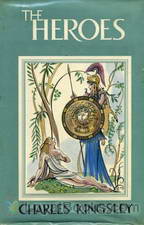 The Heroes, or Greek Fairy Tales for my Children
The Heroes, or Greek Fairy Tales for my Children
The Heroes, or Greek Fairy Tales for my Children by Charles Kingsley is a collection of three Greek mythology stories: Perseus, The Argonauts, and Theseus. The author had a great fondness for Greek fairy tales and believed the adventures of the characters would inspire children to achieve higher goals with integrity. | |
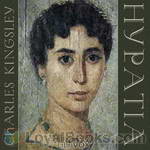 Hypatia
Hypatia
Charles Kingsley (June 12 1819 - January 23 1875) was an English divine, university professor, historian, and novelist, particularly associated with the West Country and north-east Hampshire. As a novelist, his chief power lay in his descriptive faculties, which are evident in this novel as he pictures the Egyptian desert and the ancient city Alexandria. Hypatia, 1st published in 1853, is set in 5th Century A.D. Egypt. It centers upon a young orphan monk from a desert monastery who feels called to continue his religious life in the city... | |
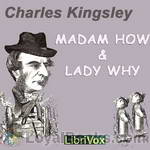 Madam How and Lady Why
Madam How and Lady Why
Did you ever wish you knew how to explain natural phenomena such as earthquakes and volcanoes to your children? Search no more, this book has all the answers (at least all the ones that were known in 1869) and gives them in a pedagogical way. Listed on the Ambleside homeschooling list. | |
By: Elizabeth Barrett Browning (1806-1861) | |
|---|---|
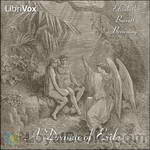 A Drama of Exile
A Drama of Exile
In writing her ‘Drama of Exile’, Barrett’s subject was ‘the new and strange experience of the fallen humanity, as it went forth from Paradise into the wilderness’. The bizarre, lyrical scenes that follow powerfully describe the grief and guilt of Eve, the sorrowful pride of Lucifer, and the redeeming power of love. | |
By: Kate Douglas Wiggin (1856-1923) | |
|---|---|
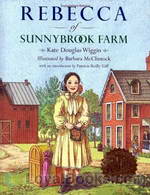 Rebecca of Sunnybrook Farm
Rebecca of Sunnybrook Farm
Eleven year old Rebecca Rowena Randall travels to Riverboro, Maine, to live with her spinster aunts, Jane and Miranda Sawyer. Her father has been dead for three years and her mother is unable to cope with her brood of seven growing children. Rebecca is being sent to her aunts' farm to try to improve her prospects in life and also ease the family's burden. The aunts had actually wanted her older and more placid sister, Hannah, who is more handy round the house to be sent, but Rebecca's mother sends the dreamy, more imaginative Rebecca instead... | |
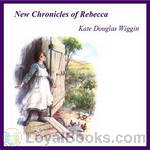 New Chronicles of Rebecca
New Chronicles of Rebecca
This book tells further stories from the period of Rebecca’s sojourn in Riverboro. | |
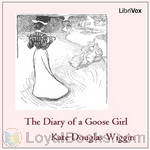 The Diary of a Goose Girl
The Diary of a Goose Girl
The "Goose Girl" is a young and somewhat independent lady who, in fleeing from her lover with whom there had been a "little tiff," became a "paying guest" at poultry farm in a quiet, out-of-the-way Sussex village, in the care of which she participates. From the author of Mother Carey's Chickens, The Bird's Christmas Carol, etc. | |
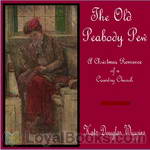 The Old Peabody Pew: A Christmas Romance of a Country Church
The Old Peabody Pew: A Christmas Romance of a Country Church
A sweet, old fashioned Christmas romance set in an old New England meeting house. | |
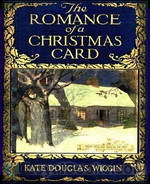 The Romance of a Christmas Card
The Romance of a Christmas Card
The story of the mission of two Christmas cards written by a minister’s wife. These cards find their way to two straying sheep from the village fold, who hear through the message in the words, and the little scenes on the cards, the compelling voice of home. There was inspiration and good cheer in the cards, and from them came, in one case reformation, in the other romance. | |
By: A. A. Milne (1882-1956) | |
|---|---|
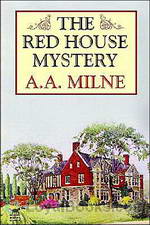 The Red House Mystery
The Red House Mystery
The Red House Mystery is a novel by A. A. Milne about the mysterious death of Robert Ablett inside the house of his brother, Mark Ablett while there was a party taking place. It’s a whodunit novel with a simple story that's skilfully told. Milne is best known for his works about Winnie the Pooh, but before he became famous for telling stories about this teddy bear, he also garnered praise for “The Red House Mystery.” The novel was set during a house party in the mansion home of Mark Ablett known as the “red house... | |
By: Mary Elizabeth Braddon (1837-1915) | |
|---|---|
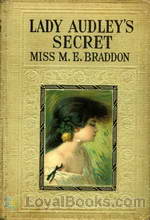 Lady Audley's Secret
Lady Audley's Secret
Inspired by a true life story, Lady Audley's Secret is the story of a woman's overwhelming ambition and passion for social success. When the first book came out in 1862, Victorian readers were shocked and outraged by its portrayal of aspects like bigamy, insanity, yearning for social status and the will to commit murder to achieve one's goals. The novel belongs to a genre that became very popular during that era. Known as “sensation novels” they can probably be equated to today's pulp fiction... | |
By: Willa Sibert Cather (1873-1947) | |
|---|---|
 Collection Of Stories, Reviews And Essays
Collection Of Stories, Reviews And Essays
Stories and essays by Willa Cather | |
By: Edna St. Vincent Millay (1892-1950) | |
|---|---|
 A Few Figs from Thistles
A Few Figs from Thistles
A collection of 23 poems by Edna St. Vincent Millay. | |
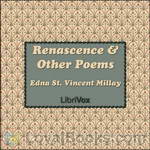 Renascence and Other Poems
Renascence and Other Poems
The following is a recording of the first volume of poetry published by Edna St. Vincent Millay. When the author had graduated from high school, she couldn’t afford to go to college. In the summer of 1912, Vincent’s sister, Norma, found work as a waitress at a hotel near where they lived. One night, Norma insisted that Vincent attend a masquerade ball, given at the hotel, if only to get Vincent out of the house and to meet people. Vincent finally gave in, and while there, sang songs and recited “Renascence,” the first poem in this collection... | |
 Second April
Second April
A collection of poems by Edna St. Vincent Millay. | |
By: Sir Arthur Conan Doyle (1859-1930) | |
|---|---|
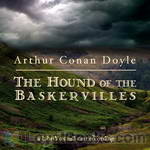 The Hound of the Baskervilles (dramatic reading)
The Hound of the Baskervilles (dramatic reading)
The Hound of the Baskervilles is the third of four crime novels by Sir Arthur Conan Doyle featuring the detective Sherlock Holmes. Originally serialised in The Strand Magazine from August 1901 to April 1902, it is set largely on Dartmoor in Devon in England's West Country and tells the story of an attempted murder inspired by the legend of a fearsome, diabolical hound. | |
 The Mystery of Cloomber
The Mystery of Cloomber
This novel is written by the author of, among other novels, the Stories of Sherlock Holmes. It is narrated by John Fothergill West, who tries to discover why the tenant of Cloomber Hall, General Heatherstone, is nervous to the point of being paranoid. Why are his fears becoming stronger every year at the fifth of October? And why doesn't he let his children leave home? This is a great mystery novel with a sharp twist at the end. | |
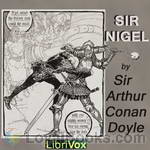 Sir Nigel
Sir Nigel
By 1348 the House of Loring has fallen on hard times. Together, the Black Death and the greedy monks of Waverley have bled away all of the Loring wealth. Even the manor house will have to go to pay their debts.Then a chance encounter with the King of England provides Nigel, the last of the Lorings, with the chance to seek his fortune in the constant wars with France. But more importantly for Nigel it also means that he may be able to do the "three small deeds" that will show he is worthy to ask for the hand of the Lady Mary in marriage.Filled with chivalry, humour, and high romance, Sir Nigel is simply a rattling good yarn. | |
 Captain of the Polestar, and other tales
Captain of the Polestar, and other tales
This is a collection of early Sir Arthur Conan Doyle short stories. It includes stories of mystery, comedy, shipwrecks and fantasy. | |
 Danger! and Other Stories
Danger! and Other Stories
This is a volume of short stories by the famous Arthur Conan Doyle. | |
 Round the Red Lamp: Being Facts and Fancies of Medical Life
Round the Red Lamp: Being Facts and Fancies of Medical Life
This is a collection of short stories focussing on the problems that present themselves to physicians and surgeons in the course of their work. The volume is named "Round the Red Lamp" as a reference to the red lamps that marked general practitioner's offices in Arthur Conan Doyle's times. | |
 Desert Drama: Being the Tragedy Of The Korosko
Desert Drama: Being the Tragedy Of The Korosko
Also published under the title The Tragedy of the Korosko (1898). A group of European tourists are enjoying their trip to Egypt in the year 1895. They are sailing up the River Nile in a "a turtle-bottomed, round-bowed stern-wheeler", the Korosko. They intend to travel to Abousir at the southern frontier of Egypt, after which the Dervish country starts. They are attacked and abducted by a marauding band of Dervish warriors. The novel contains a strong defence of British Imperialism and in particular the Imperial project in North Africa. It also reveals the very great suspicion of Islam felt by many Europeans at the time. | |
 Through the Magic Door
Through the Magic Door
I care not how humble your bookshelf may be, nor how lowly the room which it adorns. Close the door of that room behind you, shut off with it all the cares of the outer world, plunge back into the soothing company of the great dead, and then you are through the magic portal into that fair land whither worry and vexation can follow you no more. You have left all that is vulgar and all that is sordid behind you. There stand your noble, silent comrades, waiting in their ranks. Pass your eye down their files... | |
 Stark Munro Letters
Stark Munro Letters
"The letters of my friend Mr. Stark Munro appear to me to form so connected a whole, and to give so plain an account of some of the troubles which a young man may be called upon to face right away at the outset of his career, that I have handed them over to the gentleman who is about to edit them. There are two of them, the fifth and the ninth, from which some excisions are necessary; but in the main I hope that they may be reproduced as they stand. I am sure that there is no privilege which my friend... | |